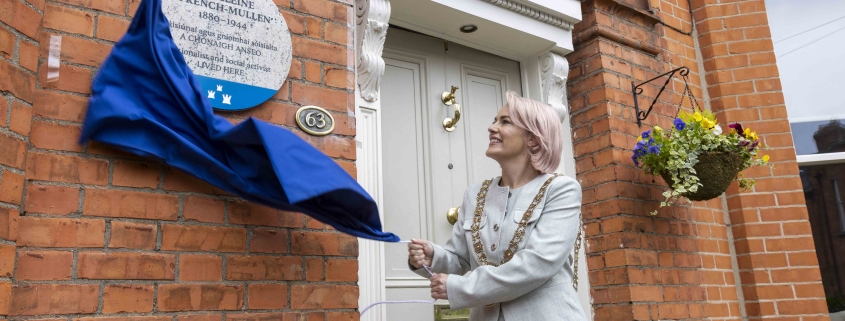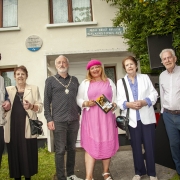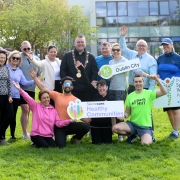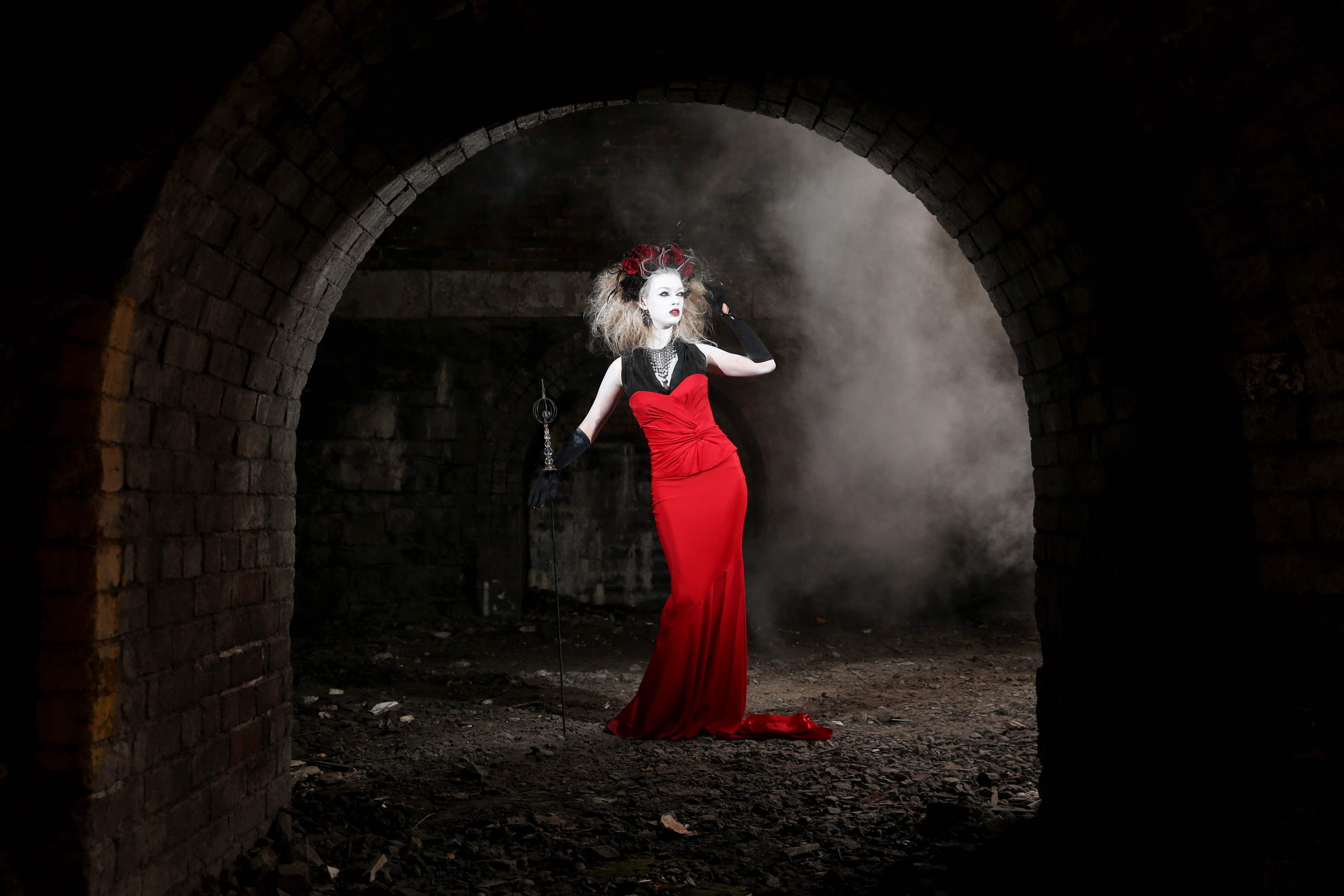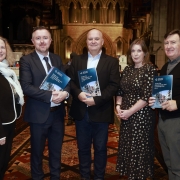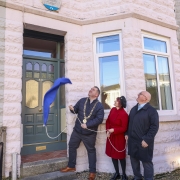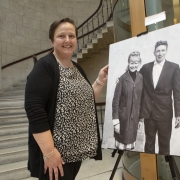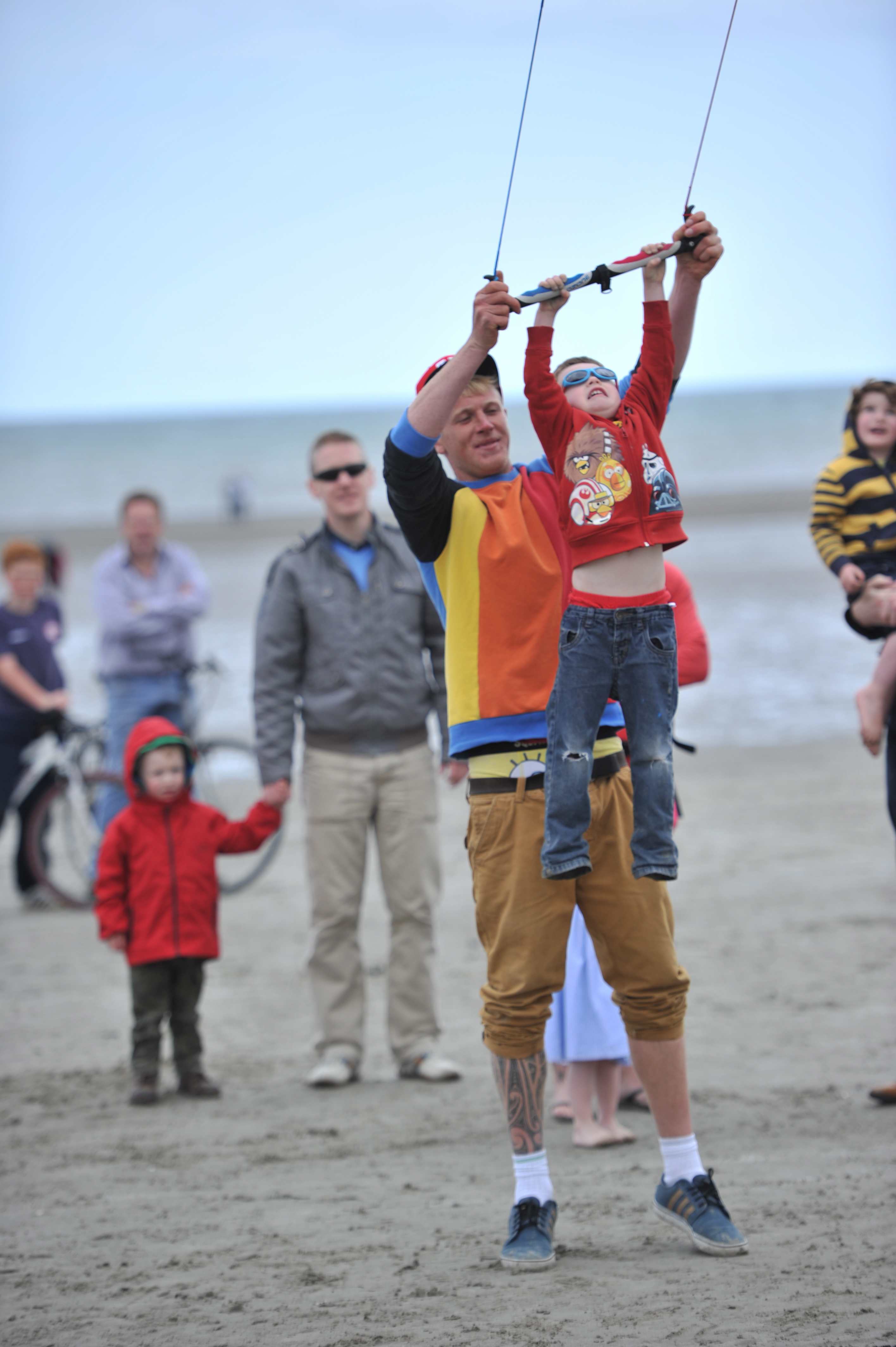Plaque unveiled to honour Madeleine ffrench-Mullen, nationalist and social advocate
A plaque to honour the nationalist and social advocate, Madeleine ffrench-Mullen was today unveiled by Lord Mayor of Dublin Emma Blain, at Madeleine’s home in 63 Moyne Road, Ranelagh.
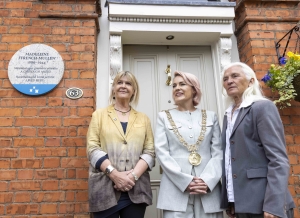
Muriel Thornton proposer & home owner, Lord Mayor of Dublin Emma Blain and actor Olwen Fouere
Born in Scotland in 1880, Madeleine ffrench-Mullen grew up in Dundrum, County Dublin. She was drawn into the labour movement to improve social conditions in Ireland. Madeleine was a member of Inghinidhe na hÉireann and wrote for the newspaper Bean na hÉireann. She was active in the campaign to provide school dinners for children. During the 1913 Lockout she helped at the soup kitchen in Liberty Hall.
Madeleine was a lieutenant in the Irish Citizen Army where she met her lifelong companion, Kathleen Lynn. In the 1916 Rising she was stationed at the Garrison of Stephen’s Green/College of Surgeons with Countess Markievicz, Nellie Gillford, Bridget Ryan, Rosie Hackett, Margaret Skinnider and others. During the fighting she was promoted to the rank of Sergeant. After the Rising she was imprisoned in Kilmainham Gaol, alongside Countess Markievicz.
She devoted her life’s work to try and improve the living conditions of the poor. She co-founded St. Ultan’s, Ireland’s first paediatric hospital, with her friend Dr. Kathleen Lynn, working tirelessly in its day to day running until her death on the 26th of May 1944. She is buried in Glasnevin Cemetery, Dublin.
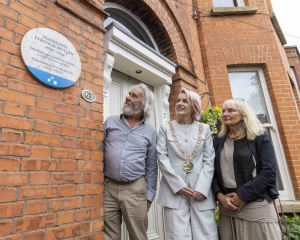
Pictured with the Lord Mayor of Dublin Emma Blain are Madeleine ffrench-Mullen’s great great grand nephew Douglas ffrench Mullen and his wife Marlene.
Speaking at the unveiling Lord Mayor of Dublin Emma Blain said, “Even at this remove we get a flavour of how this amazing woman, Madeleine ffrench-Mullen, seized the opportunity offered her generation and went about changing the society she lived in, righting the wrongs, political and social, housing and health, education and equality, so many of the things that we as public representatives should hold close to our hearts.”
“Her beliefs cost her dear, she faced enormous obstacles and went to prison for them. But she was not alone. Her list of colleagues reads like a who’s who of the women who inspired change amongst her generation: Kathleen Lynn, Constance Markievicz, Maud Gonne, Hanna Sheehy Skeffington. Her legacy was a hospital for infants she founded with Dr. Kathleen Lynn.”
She concluded, “I think it is particularly significant that we commemorate Madeleine ffrench-Mullen this week on what would have been the 81st anniversary of her death.”
The decision to erect the plaque was made by the Dublin City Council Commemorations & Naming Committee, whose chair, Deputy Lord Mayor Councillor Donna Cooney, said, “The Commemorative Plaques Scheme allows the City to formally commemorate people who have made a significant contribution to the life of Dublin. We welcome suggestions from the public for people and events to be commemorated. We particularly welcome proposals for plaques for women. Full details are on the Council website.”
Muriel Thornton, owner of 63 Moyne Road, proposed that the plaque be erected. Also participating in the unveiling ceremony were historian Dr Sinéad McCoole who recounted the life of Madeleine, actor Olwen Fouéré who shared a reading from Madeleine ffrench Mullen’s diary and Natalie Ní Chasaide with members of her family who performed a piece of music.
Notes to the editor:
Dublin City Council’s Commemorative Plaques Scheme is intended to facilitate the formal commemoration of people, organisations, and events that have made a unique and significant contribution to the life or history of Dublin through outstanding achievement, distinctive service or significant community contribution.
Proposals to commemorate living persons will not be considered. Nominees will have to have died at least 20 years previously or have passed the centenary of their birth, whichever is earlier.
Members of the public can propose a commemorative plaque on the official form. Full details, including the application form and the list of plaques erected so far, can be found at www.plaquesofdublin.ie

